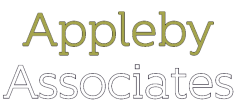A recent article quoted a job expert as saying, “There are definitely some lies that you will likely have to tell in order to get hired for a new job.”
My first thought was you should never lie in an interview which is based on a moral objection to lying that we get drilled into us from childhood; lying is bad, no ifs, ands or buts.
Then I tried to come up with a reason why you would lie in order to get a job. I struggled, but I did come to the conclusion that there is a big difference between lying and presenting information in the best possible light. If an interviewer is any good and asks challenging questions, you have to feel comfortable dealing with those and you can’t do that if you are lying.
Ask yourself how many times have you told a significant lie (that doesn’t include who took the last Rolo) and how many times have you got away with it. Even if the guilt of the lie doesn’t lead you to blurting out a confession, the chances are that that lie is going to bite you on the backside at some point.
By framing a difficult answer in a positive way you avoid the lie and know that not only did you get the job for the right reason, but even if you aren’t successful you can rework your answer and try again.
It’s about recognising where you are potentially weak with regards to the role and having credible answers in those areas. With the right mind-set and a prepared response you can answer any awkward, sensitive or challenging questions and have the confidence to challenge back.
The justification of, it’s my dream job, is exactly the reason you shouldn’t fake it; that dream can be taken away and you might not get the chance again. Being straight might mean it takes longer to land that job but once it’s yours, success is based on how you measure up, not on the lie.
If you would like to find out more about this topic, contact us to book your free personal 1:1 career consultation:

